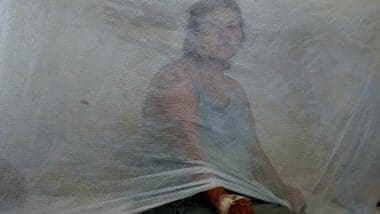In an alarming turn of events, dengue fever cases in the Americas have skyrocketed, setting a new record with a staggering 12.6 million suspected cases reported this year.
This surge in dengue cases, nearly three times the number recorded last year, has been attributed to the warmer climate conditions that are expanding the reach of the dengue-carrying mosquitoes. The Pan American Health Organization (PAHO), the regional branch of the World Health Organization in the Americas, revealed that the death toll has also risen dramatically. Over 7,700 fatalities have been reported across the Caribbean and the Americas in 2024, marking a more than 200% increase from 2,467 deaths in 2023.
PAHO Director Jarbas Barbosa pointed out that this unprecedented spike is closely linked to climatic changes, such as increased temperatures, droughts, and flooding. These environmental changes, combined with rapid population growth, unplanned urbanization, and poor sanitation, have created a perfect storm for the dengue virus to thrive. In Brazil alone, the number of cases has soared past 10 million, making it the most affected country in the region, followed by Argentina and Mexico. In the Caribbean, Guyana leads with over 41,000 cases, with French Guiana, the Dominican Republic, and Martinique not far behind.
Meanwhile, the virus has also made its presence felt in the United States, with local dengue transmissions reported in California, Florida, and Texas. There are four distinct types of the dengue virus, known as 1, 2, 3, and 4. Importantly, battling one type does not confer immunity against the others. Notably, dengue serotype 3 has taken precedence in Mexico, Central America, and parts of the Caribbean for the first time in a decade.
The symptoms of dengue can range from mild to severe, with some individuals experiencing headaches, fever, and flu-like symptoms, while others may suffer from severe complications like bleeding and shock. The situation in Puerto Rico has been dire enough to prompt the declaration of an epidemic earlier this year, with cases nearly quadrupling compared to last year.
Lydia Platón, an English professor from the University of Puerto Rico who contracted dengue in October, described the relentless fever and chills that left her drained of energy. In her neighborhood, cases surged following heavy rains, which led to pools of stagnant water—ideal breeding grounds for mosquitoes.
In response, Puerto Rican officials are urging residents to eliminate stagnant water. Similarly, the government in Trinidad and Tobago is issuing fines for properties found to be mosquito breeding sites. With a significant portion of cases in Costa Rica, Mexico, and Paraguay involving children under 15, vaccination has become a pivotal strategy in some countries.
Vaccines against dengue have been rolled out in Peru, Brazil, and Argentina, with Honduras preparing to join these efforts. However, these vaccines are primarily targeted at children and are most effective for those who have already had a dengue infection, according to Thais dos Santos, PAHO’s arboviral diseases advisor. Despite the introduction of vaccines, she emphasized that limited supplies and their conditional efficacy mean that preventive measures remain essential. “If there’s no mosquito, there’s no dengue,” she remarked.
The unprecedented rise in dengue cases across the Americas is a stark reminder of the impact of climate change and the urgent need for preventive strategies. While vaccines offer a glimmer of hope, the fight against dengue largely hinges on effective environmental management and public cooperation to reduce mosquito breeding grounds.
Source: Apnews














